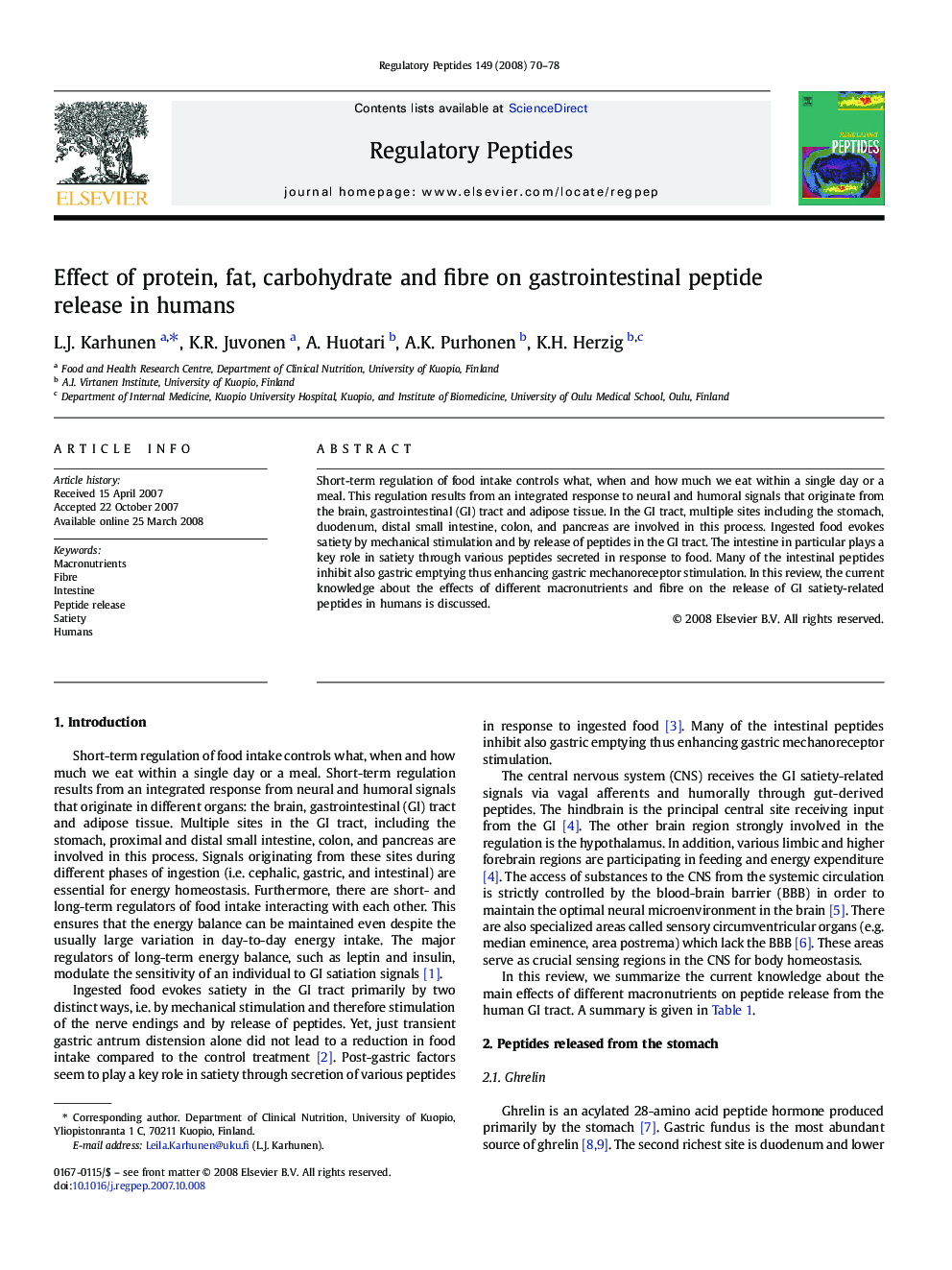| Article ID | Journal | Published Year | Pages | File Type |
|---|---|---|---|---|
| 2023139 | Regulatory Peptides | 2008 | 9 Pages |
Short-term regulation of food intake controls what, when and how much we eat within a single day or a meal. This regulation results from an integrated response to neural and humoral signals that originate from the brain, gastrointestinal (GI) tract and adipose tissue. In the GI tract, multiple sites including the stomach, duodenum, distal small intestine, colon, and pancreas are involved in this process. Ingested food evokes satiety by mechanical stimulation and by release of peptides in the GI tract. The intestine in particular plays a key role in satiety through various peptides secreted in response to food. Many of the intestinal peptides inhibit also gastric emptying thus enhancing gastric mechanoreceptor stimulation. In this review, the current knowledge about the effects of different macronutrients and fibre on the release of GI satiety-related peptides in humans is discussed.
